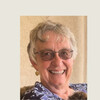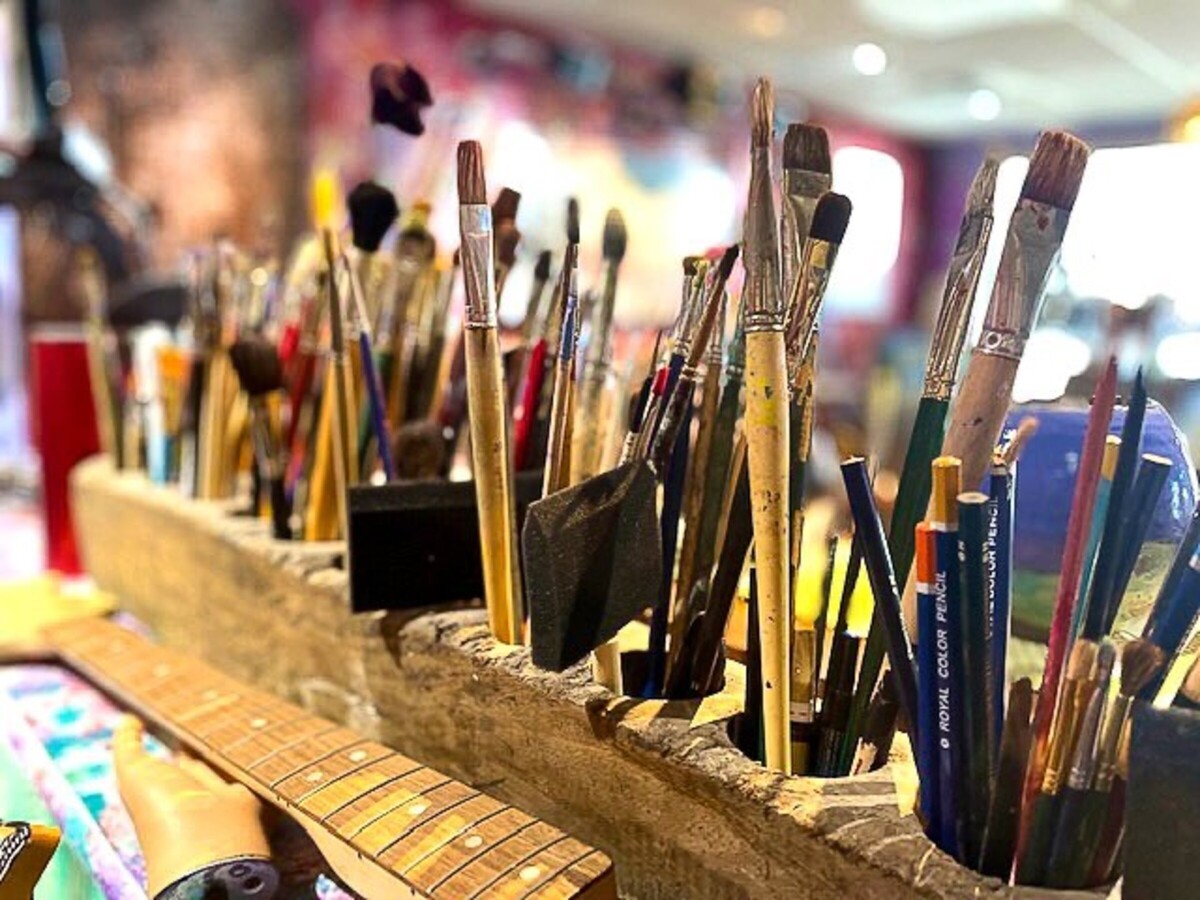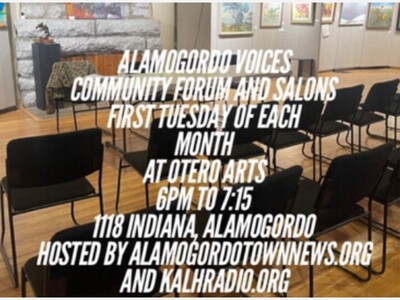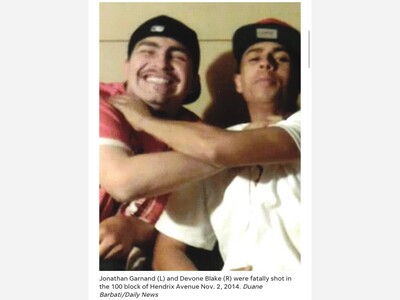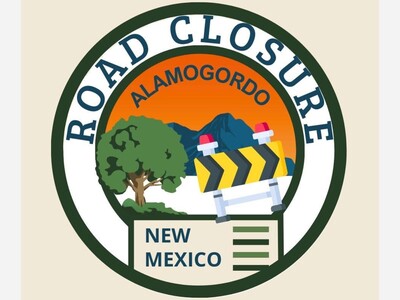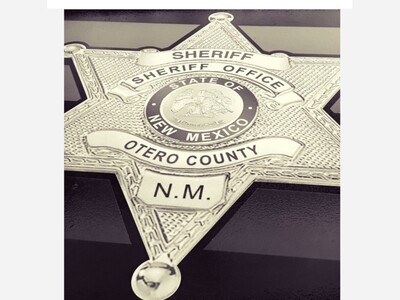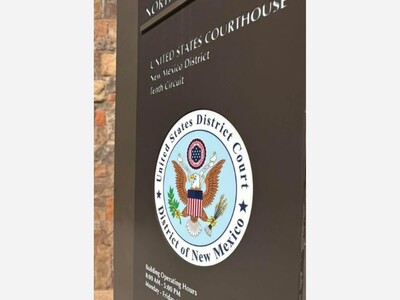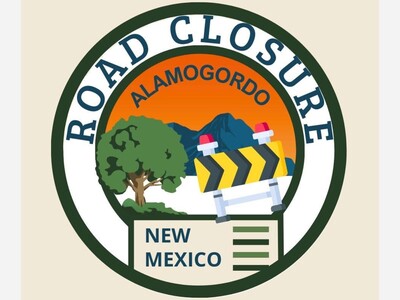a heartfelt and useful commentary, and a well reasoned plea for those who are not in positions of power to step up and make our voices heard. It's far too easy for the marginalized to fall silent, and that simply guarantees that they will remain without a voice. thank you for this, and i hope to see you in these pages often.
and remember to vote - it's the most elementary way to speak out!
tom mitchell
mountain park
It is easy to feel you have no effective voice in impacting government or building a community you want to live in.
I am writing to share my thoughts about ways to see yourself as not only capable but effective.
This is an opinion piece and I have two overall biases. The first, is that I believe everyone has an important voice and perspective even as it may be in conflict with others. The second, is that a community is only as strong as the respect it offers to all voices, the skill we have in communicating, and the transparency/accountability of governance.
When it comes to speaking out, voicing your opinion, or advocating for something, it is important to know that we don’t have to do it all or even do anything. There is no judgement on this except your own. I personally have found that my attempts to be thoughtful about community issues and a “reasoned” voice allows me to feel useful and engaged in my community. I have also discovered a friendship network this way… in the form of discussions. This has created a balance for me in the face of stress from illness and aging.
I very intentionally tend to my “voice”, the messages I try to convey, and how I project ideas. I make mistakes, try to own them, and learn from them as I believe these are important skills for anyone. One earns credibility both in demonstrating respect and in relating to others.
Any community has a number of players…those in power, leaders (official and informal), decision makers, those defending the status quo, the disenfranchised, those thriving and folks struggling to survive. Additionally there will be effective change agents as well as watchdogs, rabblerousers, and those that spew negativity. Some will be knowledgable and some not. Many remain silent. A community is a rich tapestry.
What I believe is critical to increasing one’s effectiveness is the ability to see this continuum, to identify where you are functioning, and to be intentional about where you want to be. In reality we are probably not in one place all the time - but self-awareness is key to recognizing your personal power and effectiveness.
We often see our theaters of impact defined as attending meetings, writing letters, emailing/calling government officials, participating in campaigns and voting. AND I know there are many other undervalued or unrecognized forums for influence. These include involvement in churches, non-profits, community causes, clubs, other organizations…volunteering, writing, and conversations with neighbors. It is here that we define our community, name our hopes and concerns, test our voice, and connect with others. This can be very satisfying and impactful. It is the fabric of civic involvement. All of this comes down to recognizing that you are an important community member and your opinion is valid. With this recognition and practice you will see your efficacy increase. We all come from different beliefs and backgrounds and will hold different perspectives. That is to be expected and it is OK.
This path of exercising one’s civic voice does not come without bumps and bruises and can be very frustrating at times. It is important to realize we will learn how to cope constructively with differences, negativity, and criticism, and to not take reactions personally. Pausing and getting a good night’s sleep can help!
Tips
- Be informed and do your homework. Check out facts and stories. This builds your knowledge-base and will enhance your credibility.
- Know your strengths and weaknesses and understand what you are trying to achieve. This is the only way to truly recognize signs of progress in yourself and in your community. You will increase your confidence this way.
- Own your mistakes. Taking responsibility for them makes you a good role model for meaningful dialogue and responsible communication.
- Be clear and succinct. (I need improvement on the latter!)
- Try to be constructive when criticizing. Focus on the issue not the person if possible.
- Be respectful. Snarkiness only goes so far. (Yes, we are human and will probably go down this path some of the time). Remember name-calling will shut down connection.
- Anticipate running into defensive reactions and know that people can’t listen when they are upset. While you do not have to tolerate disrespect know that you can be the tortoise… it is a long race. Thoughtful responses have more impact than hasty reactions.
- Finally, support those folks who create forums for constructive discussions. Beware those who want to control the narrative and shut them down.
In conclusion, I hope you will offer your voice to the conversation. We can be a community who addresses problems openly and effectively! This is how we set grassroots expectations! It’s my “trickle up” philosophy.
More later, as 2nd Life Media and Alamogordo Town News has invited my writing on occasion
Thanks for listening.
(Disclaimer: I have at times been called a Pollyanna. This is the name calling thing. However, I decided long ago that I would rather err in that direction!)
NOTE: Kathy Ramsey is an Alamogordo resident, retired hospice social worker, writer, owner of kairosarts.space, and Oma.

